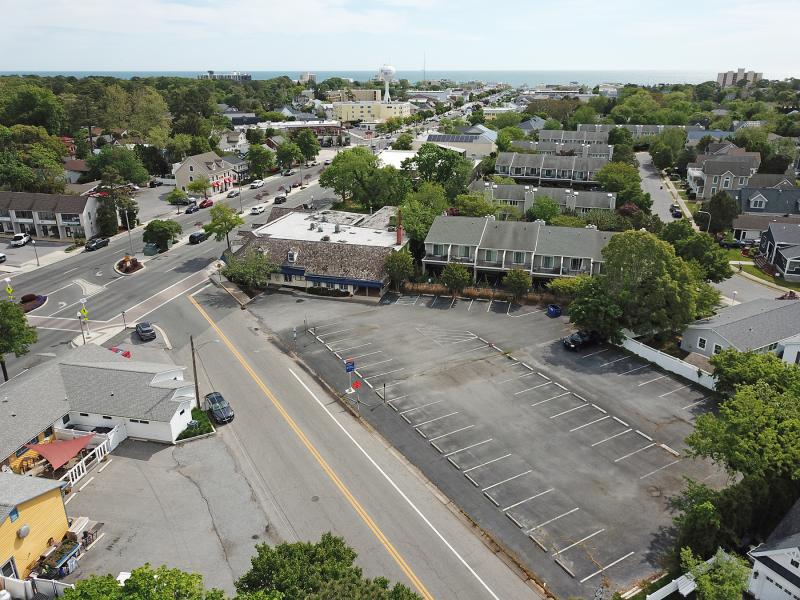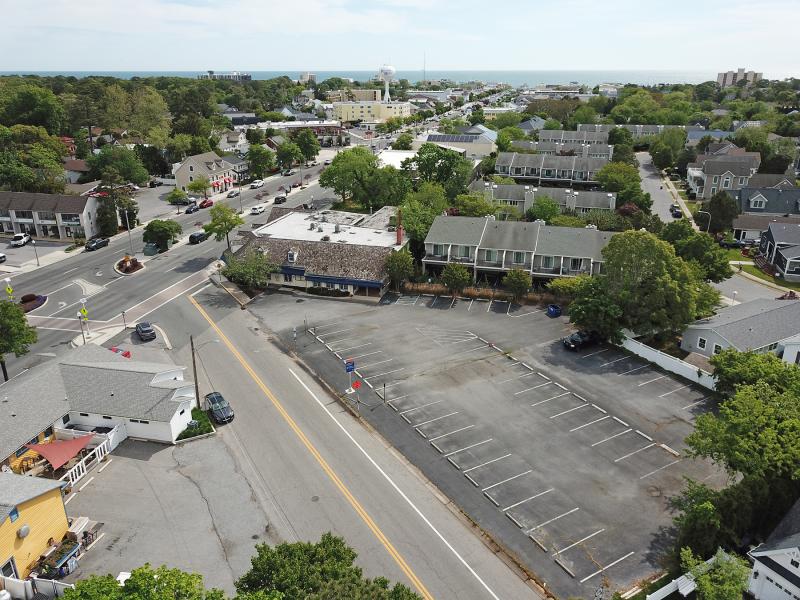-
 play_arrow
play_arrow
Radio Rehoboth

Nearly two years ago, Rehoboth Beach commissioners voted against a proposed rezoning of the property on the southeast corner of Rehoboth Avenue and State Road.
Following the hashing out of issues related to which court should hear the case and what constituted the record, a lawsuit brought by property owner 330 Hospitality Group LLC challenging that decision has finally reached the briefing stage in Delaware Superior Court. The attorney representing the developer said the commissioners were biased in their decision and argues the rezoning request shouldn’t go back to the city for another hearing, but instead it should be granted.
“Not only is there no substantial evidence to support the decision, there is no evidence at all,” said developer attorney Rick Berl in his 44-page opening brief Oct. 16. “In addition, the numerous conflicts of interest and bias exhibited by several decision-makers amounts to arbitrary and capricious action, supporting reversal.”
The property in question, 330 Rehoboth Ave., is about 42,500 square feet, of which about 23,000 square feet along Rehoboth Avenue is zoned C-1 commercial and about 19,500 square feet along State Road is R-1 residential.
The proposed rezoning of the residential portion has been on the books since January 2019, when Lockwood Design and Construction’s Don Lockwood first brought it forward. He had a 99-year lease on the property. A couple of years later, Lockwood, in partnership with former Gallo Realty owner Bette Gallo, purchased the property under the name 330 Hospitality LLC.
During a hearing in March 2022, commissioners voted against the requested zoning, citing a negative impact on the surrounding residential neighborhood and also being in conflict with Rehoboth Beach’s comprehensive development plan.
In his brief, Berl calls out Commissioner Patrick Gossett, former Commissioner Susan Gay, who currently sits on the planning commission, and Planning Commissioner John Dewey for essentially tainting the public hearing process.
“The public comments from Gay, Gossett and the unidentified commissioner, and to a lesser extent, from Dewey, were improper in that those comments established legal bias, thereby irreparably tainting the proceeding before the city commissioners,” said Berl.
The city’s own consultant, Thomas West, wrote a report that supported the rezoning, but commissioners ignored that report, said Berl. In every aspect of the application, the West report favors rezoning the R-1 portion to C-1, he said.
“With its refusal to even acknowledge the report of its city planner which explained how the application met code requirements, by ignoring its attorney’s admonitions throughout the process, and by essentially acting as prosecutor and jury, the City of Rehoboth has shown the type of indifference to its obligations that requires a reversal and an order that the rezoning be granted. Justice requires nothing less,” said Berl.
Attorney Dan Griffith is representing Rehoboth Beach in the lawsuit. He submitted his 23-page answering brief Nov. 15.
“Against its heavy burden to establish that the city’s decision was arbitrary and capricious, 330 Hospitality Group has simply resorted to smears of those who opposed the application, characterizing such opposition as ‘bizarre,’ ‘border(ing) on the absurd’ and a ‘huge leap of faith,’” said Griffith. “330 Hospitality Group’s challenge to the city’s legitimate exercise of its discretion is based upon some misguided perception of a private landowner’s right to compel a municipality to rezone property.”
Griffith argues the public has been against the rezoning from the very first planning commission meeting and continued to oppose it at the commissioner level.
“From inception in 2019 until the eventual vote, a common theme at every meeting was public opposition and complaints about maintaining the residential character of the neighborhood,” said Griffith.
The city’s attorney also argues the city’s decisions were not only well articulated and based upon the record, but also code based.
The commissioners’ collective concern for the welfare and quality-of-life issues surrounding the rezoning was also apparent throughout the voting process at the hearing, he said.
“In sum, it was articulated clearly and supported by evidence in the record that the proposed rezoning was inconsistent with the residential character of the neighborhood,” said Griffith.
Research reveals no Delaware cases where a court has ordered a rezoning that has been denied by a municipality, said Griffith, describing the requested relief as “unprecedented in the history of Delaware jurisprudence.” He said the reason why 330 Hospitality doesn’t cite any cases in its opening brief is because those cases don’t exist.
The two filed briefs are not the last the attorneys will have to argue their cases.
Griffith said 330 Hospitality has until Thursday, Nov. 30, to file a reply brief to his answering brief, and then the city has until Thursday, Dec. 7, to respond to that. At that time, the briefing will be closed.
Oral arguments will be at the discretion of the court, which means that Superior Court Judge Robert H. Robinson may either call the sides in for a hearing or just decide on the briefs that have been submitted, said Griffith. In either event, he said, he would not expect any decision before the new year and very likely well into the first quarter of 2024.
Go to Source:https://www.capegazette.com/article/attorney-rehoboth-officials-biased-denial-rezoning/267572
Author: Chris Flood
Written by: RSS
Similar posts
-

Daybreak Morning Show
Hosted by Jeff Balk
Join Jeff Balk for all the news and information you need to know to start your day and enjoy your stay in Rehoboth Beach, Dewey Beach and the Lewes areas with special featured guests from our non-profits, businesses and art communities.
close Chart
Top popular

News Briefs 10/17/23
Board of Commissioners Workshop & Special Meeting – November 6

Six Sussex road projects considered in latest CTP
NFL Week 17 highlights: Packers, 49ers, Saints, Steelers win, Cardinals stun Eagles
Knicks vs. Cavaliers prediction, odds, line, spread, time: 2023 NBA picks, Nov. 1 best bets from proven model
Copyright 2023 East Sussex Public Broadcasting, Inc.





